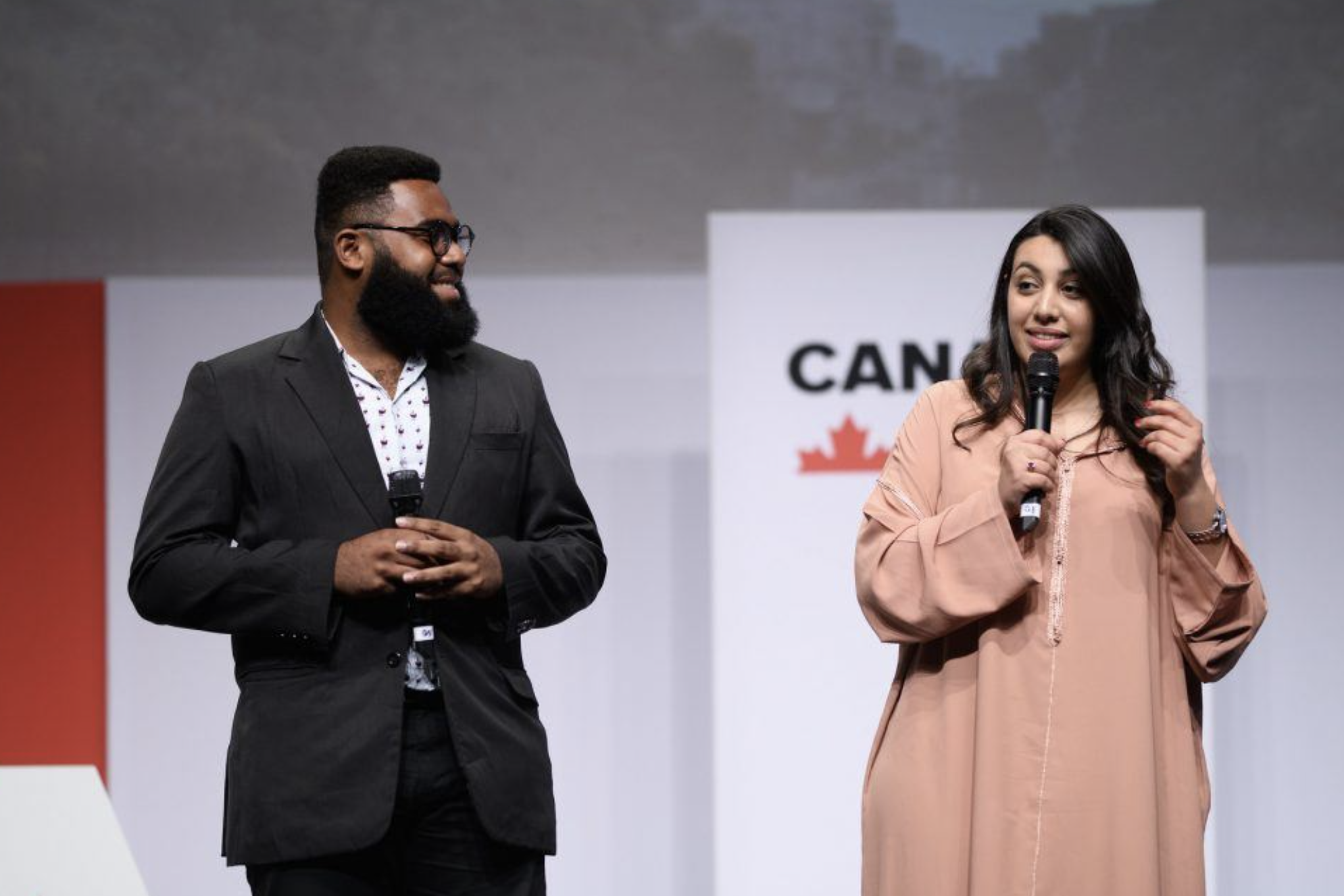NEWS
December 4, 2020

IN BRIEF
By Katie Fuhs and Blair Glencorse Governance cannot be open unless it is open for everyone. This means it needs to include women, indigenous groups, members of the LGBTQIA+ community and many others. Youth cross-cuts all of these groups, and young people are even playing a critical role in pushing for a more transparent, fair and equitable response and recovery from the COVID-19 pandemic. Young people have always been willing to challenge the status-quo but have historically had difficulty ensuring that their voices and ideas are included in policymaking processes. But with massive demographic shifts around the world, enhanced [...]
SHARE
By Katie Fuhs and Blair Glencorse
Governance cannot be open unless it is open for everyone. This means it needs to include women, indigenous groups, members of the LGBTQIA+ community and many others. Youth cross-cuts all of these groups, and young people are even playing a critical role in pushing for a more transparent, fair and equitable response and recovery from the COVID-19 pandemic. Young people have always been willing to challenge the status-quo but have historically had difficulty ensuring that their voices and ideas are included in policymaking processes. But with massive demographic shifts around the world, enhanced connectivity, and rapidly evolving ideas and networks, youth are now more able, powerful and willing to drive open governance than ever before.
This came through loud and clear at the recent OpenGov Digital Youth Summit, which convened more than 1,000 young people from over 112 countries for two days of brainstorming, peer exchange, skills building and networking. There were some key themes that came through strongly during the discussions:
- Young people can help set the agenda for building back better if they are given the opportunity to do so. But, too often they have to make their voices heard outside of government systems that do not recognize the value of their insights, perspectives, and ideas as recent youth-led protests in Nigeria, Thailand and Peru have made clear. Young people see themselves not as revolutionaries or trouble-makers but as “good trouble” if the pathways can be created to ensure they are included in decision-making.
- Including youth in decision-making is not a COVID-19 specific problem. There are structural barriers to participation maintained by a generation in power that is uninterested in and/or uninformed about the kind of challenges young people are facing today. In Africa, for example, the age gap between the population and national leaders, on average, is 42 years; and only 14% of parliamentarians are under 40. There has to be a wholesale shift in pathways into decision-making for youth to address this. For example, the Mayor of Buenos Aires has just created a cabinet with 2 public servants under the age of 30. This is a start- and more people in power need to do the same.
- There is a deep and understandable mistrust of governments but a clear articulation of the idea that “transparency breeds trust and solidarity”. If those in power want the support of younger generations to address current challenges, they must commit to open data, processes and policies. And youth are leading the way in showing how this can be done collaboratively- from Reaccion, an open contracting platform in Paraguay; to the DCDJ program which supports healthcare data synthesis in Cote D’Ivoire; to Compras COVID which is tracking COVID-19 spending in Chile.
- Inclusion is central. Effective public governance cannot be achieved without the active, ongoing, and meaningful inclusion of all demographic groups in society. So, young people want governments and other decision-makers to double-down on bringing all kinds of people into governance in ways that are disaggregated and make sense within specific contexts and communities. This also means creating innovative spaces for people to engage- using different tools, languages and techniques- and meeting various groups where they reside and congregate physically and digitally.
- The current moment provides a historic opportunity to co-create an intentional, transformative, inter-generational response to this pandemic- and future emergencies. Currently, the response and recovery to this virus is not proving nearly big enough in vision or scope to fundamentally shift governance dynamics and address pandemic-created problems. Resources like the open government approaches to COVID-19 crowdsourced by OGP are an excellent starting point. But there is more we can do to synthesize, support, and scale up the incredible ways young people are stepping up to this crisis. Young people like the founders of DamoGo in South Korea, who transformed their food waste-reduction app into a donation app; and the singers of the Ndlovu Youth Choir in South Africa, who composed musical editions of WHO safety guidelines in local languages for example.
As we heard during the Summit: “youth cannot afford to be bystanders”. Through the OpenGov Youth Collective, we hope to continue building a community of “good troublemakers” to do everything from organizing future digital summits to running creative campaigns to developing advocacy efforts to change legislation. And OGP can be a platform for young people to generate the change they want to see. Through their OGP action plans, governments can purposefully include young people- as they have already in places like Tunisia, Uruguay and Germany. Just as youth can no longer afford to work outside of government processes, those in power can no longer afford to exclude them from decision-making.
